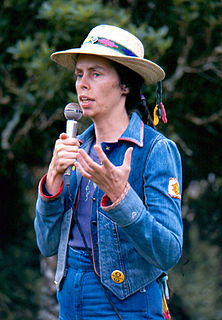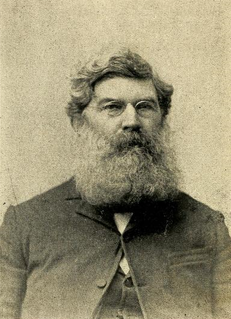A Quote by Louis Pasteur
Great problems are now being handled, keeping every thinking man in suspense; the unity or multiplicity of human races; the creation of man 1,000 years or 1,000 centuries ago; the fixity of species, or the slow and progressive transformation of one species into another; the eternity of matter; the idea of a God unnecessary: such are some of the questions that humanity discusses nowadays.
Related Quotes
The Creator would appear as endowed with a passion for stars, on the one hand, and for beetles on the other, for the simple reason that there are nearly 300,000 species of beetle known, and perhaps more, as compared with somewhat less than 9,000 species of birds and a little over 10,000 species of mammals.
A few years ago, they [Neandertals] were thought to be ancestral to anatomically modern humans, but now we know that modern humans appeared at least 100,000 years ago, much before the disappearance of the Neandertals. Moreover, in caves in the Middle East, fossils of modern humans have been found dated 120,000-100,000 years ago, as well as Neandertals dated at 60,000 and 70,000 years ago, followed again by modern humans dated at 40,000 years ago. It is unclear whether the two forms repeatedly replaced one another by migration from other regions, or whether they coexisted in some areas
All of us are linear thinkers. We evolved in a world that was local and linear. You know, back 100,000, 200,000, millions of years ago, when we were evolving as a human species, nothing changed. You know, the life of your great-grandparents, you, your kids - it was the same. And so we are local and linear thinkers.
If we consider the superiority of the human species, the size of its brain, its powers of thinking, language and organization, we can say this: were there the slightest possibility that another rival or superior species might appear, on earth or elsewhere, man would use every means at his disposal to destroy it.
When I am at a dinner table, I love to ask everybody, 'How long do you think our species might last?' I've read that the average age of a species, of any species, is about two million years. Is it possible we can have an average life span as a species? And do you picture us two million years more or a million and a half years, or 5,000?
The ordinary naturalist is not sufficiently aware that when dogmatizing on what species are, he is grappling with the whole question of the organic world & its connection with the time past & with Man; that it involves the question of Man & his relation to the brutes, of instinct, intelligence & reason, of Creation, transmutation & progressive improvement or development. Each set of geological questions & of ethnological & zool. & botan. are parts of the great problem which is always assuming a new aspect.
This religion teaches that 6,000 years ago God made the first man out of dust - not even mud - and the first woman out of a bone; that God cursed the whole human race because a snake made the woman eat an apple; that God had a son by another man's wife, and that he had this son murdered in order to keep himself from sending all the human race to hell.
Darwin's theory of evolution is a framework by which we understand the diversity of life on Earth. But there is no equation sitting there in Darwin's 'Origin of Species' that you apply and say, 'What is this species going to look like in 100 years or 1,000 years?' Biology isn't there yet with that kind of predictive precision.


































